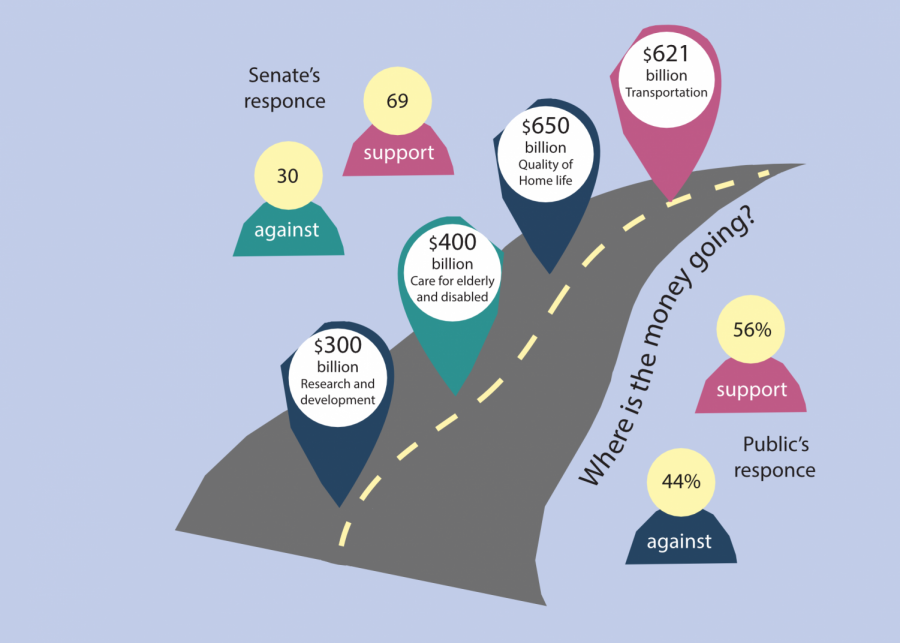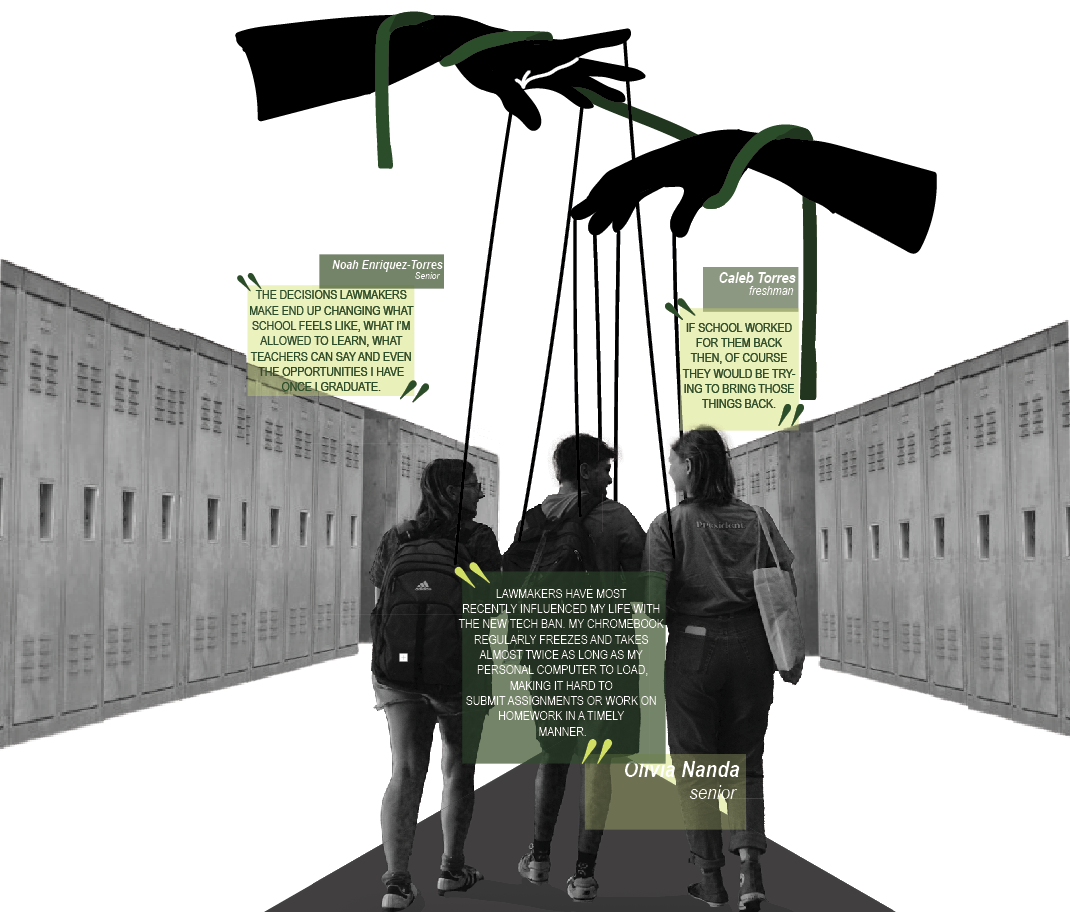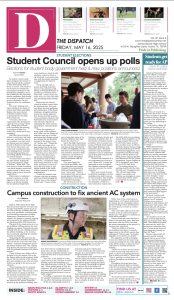Potential Biden spending bill hits road-blocks to reality
Audrey Hagan
One of the main points of controversy is the $37.5 billion spending budget going towards electrical transportation.
November 9, 2021
On August 10, 2021 the US Senate passed a $1 trillion dollar infrastructure bill. The bill was crafted by Senators under President Biden in an attempt to rebuild the country’s bridges and roads as well as to fund a new climate resilience plan. After weeks of negotiation and debates, the final vote in the Senate was 69 in favor and 30 against the legislation, which was uncommonly bipartisan in 2020-21.
While the bill hasn’t been passed in the House yet, it is going to provide funding for many things including $110 billion on roads and bridges, $73 billion for a clean energy makeover, $21 billion on an electric grid and pollution clean up, and $65 billion is going into high speed internet that will be going into less fortunate rural communities. There is a lot of controversy regarding the amount of money being spent in this package. Many Senators have expressed that they think the bill is too expensive.
“No, it’s actually going to help the nation’s economy, a good infrastructure helps businesses make more money and it makes it easier to ship goods,” history teacher Charles Stampley said. “So you have to have good infrastructure for the economy.”
One of the main points of controversy is the $37.5 billion spending budget going towards electrical transportation. There is a lot of money planned on being spent towards transportation and those billions would just be a start. Biden also wants to use some of the money for incentives, so people can purchase electrical vehicles as a part of his attempt to decarbonize the transportation sector.
“I think spending $37.5 billion on electrical transportation, while it seems like a lot, is vital to help save the environment,” senior Addie Lilley said. “We don’t realize how much pollution we put into the environment with our cars and buses so investing in this eco-friendly transportation will save us in the long run.”
Once the infrastructure bill passed the Senate, it was sent to the House for passage. It was there that the fate of the bill change dramatically. House leadership, under Speaker Nancy Pelosi, was rebuked by progressive Democrats in the party, who have demanded a secondary bill’s passage in the Senate before they will agree to vote the infrastructure bill into law. The secondary bill is part of a greater budget resolution bill, with a proposed value of more than $3.5 trillion dollars.
“You are trying to create a balance between what the country needs and how much it can afford so that’s why it is important that both sides compromise,” Stampley said. “You have to go through and there’s going to be some things that one party doesn’t like and there are some things that some parties do like. You have to work together.”
Texas citizens are curious as to how the bill will affect Texas. The main spending points on the bill that will benefit Texas as a whole is rebuilding and repairing highways and attempting to improve public transportation as many Texans commute to and from work on public transportation.
“This bill will allocate money to repair highways, improve transportation, and distribute high speed internet to those in need in Texas,” Lilley said. “I think it will really benefit Texas as infrastructure is vital to the state.”
Texas Senators Ted Cruz and John Cornyn voted against the infrastructure bill. Texas is one of the three states that will benefit the most and has the opportunity to get more than $30 billion. The state is also expected to receive $3.3 billion for public transportations, $537 million for bridge replacements and repairs and another $408 million just for electrical car charging stations.
“Personally, I get where they’re coming from. I think the legislation has its positives and negatives, and both sides have valid arguments,” senior Brodi Tokar said. “The bill itself is quite expensive, and more taxes aren’t ideal but the expansion of infrastructure seems necessary with how much Austin and Texas as a whole are growing.”
As of Monday, Oct. 4, discussions at the national level have stalled. Passage of both bills is still being discussed as both the house and the senate are still engaged in talks to move the bills along. Biden was optimistic about the final result, saying that he expects both bills to pass eventually. Both parties, and their internal groups, expect some parts of the greater budget resolution bill to change.
“I think that this infrastructure package, since it will preserve our nation’s infrastructure for the foreseeable future, is a worthy investment and a good amount of money for our country,” Lilley said.









